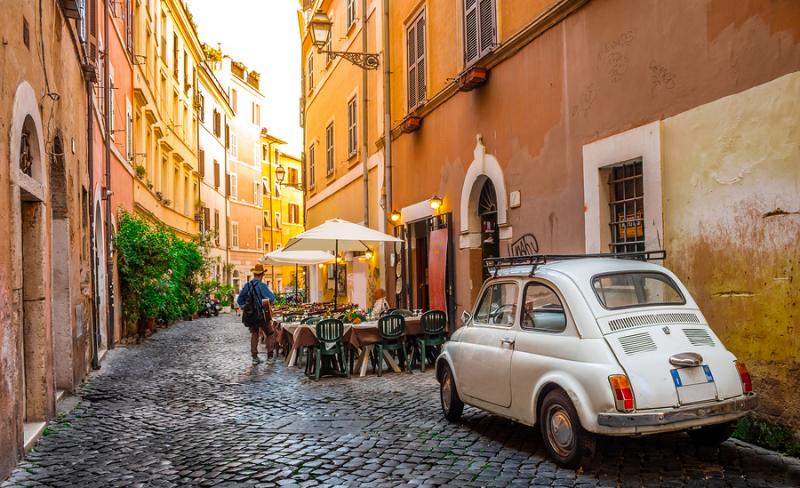How would you say ‘I can’ in Italian?
For example, ‘I can speak Italian’, or ‘I can find the square’, or ‘I can do my homework’. Maybe your answer would be ‘posso’, from the verb ‘potere’ - which means ‘can’ or ‘to be able to’ in Italian.
You would be right in some cases. However, it’s not the only way to say ‘I can’.
In today’s language lesson we’ll look at three different ways we can translate ‘can’, and which word is best to use in each situation.
Posso
So let’s start with ‘posso’. This comes from the verb ‘potere’. It is called a modal verb or helper verb and is followed by an infinitive, you can read all about them here. This verb expresses the possibility to do something depending on external circumstances (can / to be able to) or the the permission to do something (may). See some examples:
Domani non lavoro quindi posso andare al centro - Tomorrow I am not working so I can go to the city centre (possibility)
Posso entrare? - Can I come in? (permission)
Oggi c’è il sole quindi posso andare al mare - Today it’s sunny so I can go to the beach (possibility)
Posso uscire con i miei amici? - Can I go out with my friends? / May I go out with my friends? (permission)
Puoi comprare il giornale stamattina? Non posso, vado di fretta stamattina - Can you buy the newspaper this morning? I can’t, I am in a hurry this morning. (possibility)
So
Another verb you can use to say ‘I can is’ is the verb ‘sapere’. It means ‘to know how to do something’, because we we have learnt it or practised it. It refers to a skill or an ability. Like ‘potere’ it is also a modal verb and is followed by infinitive.
So parlare italiano - I can speak Italian / I know how to speak Italian
So nuotare - I can swim / I know how to swim
So giocare a tennis - I can play tennis / I know how to play tennis
So cucinare - I can cook / I know how to cook
So suonare la chitarra - I can play the guitar / I know how to play the guitar
So cantare bene - I can sing well / I know how to sing well
Riesco
‘Riuscire’ also means ‘can’ but in the sense of ‘to manage’ or ‘to succeed’, thanks to someone’s physical or mental capabilities. The other two verbs we have looked at today are followed by an infinitive, but ‘riuscire’ is always followed by ‘a’ then the infinitive.
Dove sei? Non riesco a trovarti - Where are you? I can’t find you / Where are you? I can’t manage to find you
Non riesco a capire quello che dice, parla troppo velocemente - I can’t understand what she says, she speaks too fast
Non riesco ad aprire la porta, è chiusa - I can’t open the door, it’s closed / I can’t manage to open the door, it’s closed
Sono troppo stanca, non riesco ad alzarmi dal letto - I’m so tired, I can’t get out of bed
Finally let’s look at one example using each of these three ways of saying ‘can’:
Non posso guidare la macchina, ho dimenticato la patente - I can’t drive the car, I have forgotten my driver’s licence
Non so guidare la macchina, non ho mai imparato - I can’t drive the car, I have never learnt how to
Non riesco a guidare la macchina, sono stanchissima - I can’t drive the car, I am way too tired









